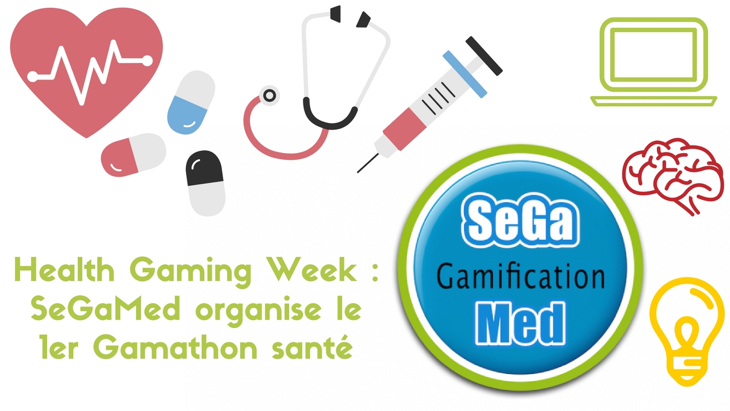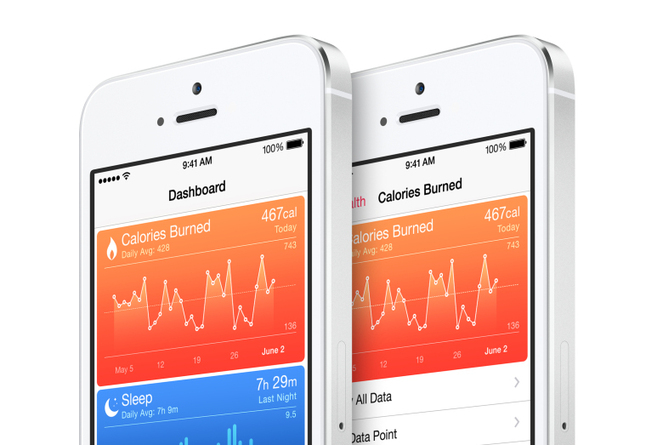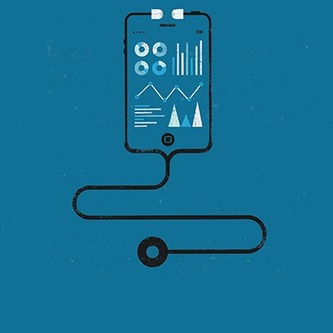The Food and Drug Administration (FDA), which regulates everything from heart monitors to horse vaccines, will soon have its hands full with consumer health apps and devices.
The vast majority of the health apps you’ll find in Apple’s or Google’s app stores are harmless, like step counters and heart beat monitors. They’re non-clinical, non-actionable, and informational or motivational in nature.
But the next wave of biometric devices and apps might go further, measuring things like real-time blood pressure, blood glucose, and oxygen levels.
More clinical apps
The FDA is charged with keeping watch on the safety and efficacy of consumer health products. Lately, that includes more clinical apps as well as devices you might buy at the drugstore, like a home glucose testing kit.
“It’s these apps that the FDA says it will regulate,” David Bates of Brigham and Women’s Hospital and Physicians Organization told VentureBeat in June. These apps will have to go through the full 510(k) process,” he said.
Dr. Bates chaired a group to advise the FDA on how to review health apps for approval, and on how the FDA should advise developers.
“It was intended to help them think through the risk factors involved with these products and then give guidance on how to stay within the guidelines,” he said.
“The device makers were asking from some guidance from The FDA on what types of things would be accepted and what wouldn’t,” Bates said.
Bates believes the FDA wants to use a light regulatory touch when looking at new medical devices. “The FDA definitely wants innovation to continue in clinical devices,” he said. “In general the FDA knows that the vast majority of apps are just informational.”
The FDA’s final guidance focuses on a small subset of mobile apps that present a greater risk to patients if they do not work as intended.
Health apps go mainstream
The big software companies (Apple, Google, and Samsung) have brought attention to, and lent credibility to, apps and devices that do more than count steps. These companies are building large cloud platforms designed to collect health data from all sorts of health apps and devices.
more at http://venturebeat.com/2014/07/21/health-apps-are-changing-so-must-the-fda/
Source: venturebeat.com
After decades as a technological laggard, medicine has entered its data age. Mobile technologies, sensors, genome sequencing, and advances in analytic software now make it possible to capture vast amounts of information about our individual makeup and the environment around us. The sum of this information could transform medicine, turning a field aimed at treating the average patient into one that’s customized to each person while shifting more control and responsibility from doctors to patients.
The question is: can big data make health care better?
“There is a lot of data being gathered. That’s not enough,” says Ed Martin, interim director of the Information Services Unit at the University of California San Francisco School of Medicine. “It’s really about coming up with applications that make data actionable.”
The business opportunity in making sense of that data—potentially $300 billion to $450 billion a year, according to consultants McKinsey & Company—is driving well-established companies like Apple, Qualcomm, and IBM to invest in technologies from data-capturing smartphone apps to billion-dollar analytical systems. It’s feeding the rising enthusiasm for startups as well.
Venture capital firms like Greylock Partners and Kleiner Perkins Caufield & Byers, as well as the corporate venture funds of Google, Samsung, Merck, and others, have invested more than $3 billion in health-care information technology since the beginning of 2013—a rapid acceleration from previous years, according to data from Mercom Capital Group.
Source: www.technologyreview.com
It’s one of those thoughts many mHealth insiders and observers have at some point had: What if one could put the power of Watson analytics into a smartphone and interact with it like Apple’s Siri at the point of care?
Well, that specific dream moved closer to reality on Tuesday when Apple and IBM joined forces to create a mobile platform christened IBM Mobile First for iOS.
“For the first time ever we’re putting IBM’s renowned big data analytics at iOS users’ fingertips,” Apple CEO Tim Cook said in a prepared statement. “This is a radical step for enterprise and something that only Apple and IBM can deliver.”
IBM CEO Ginni Rometty added that the intention is to bring the same “innovations [that] have transformed our lives,” into the ways that people work, thereby “allowing people to re-imagine work, industries, and professions.”
To that end, the companies hope that IBM Mobile First for iOS will “transform enterprise mobility through a new class of business apps,” they explained.
It’s not all that often technology giants align and rattle off healthcare as one of their target verticals, much less that Apple joins forces with any of the IT old guard — which gives the partnership a booster shot of luster. And in an mHealth industry currently going like gangbusters with too many startups to count, the sheer scale that Apple and IBM bring at the very least has the potential for significant market-shaping.
Source: www.mhealthnews.com






